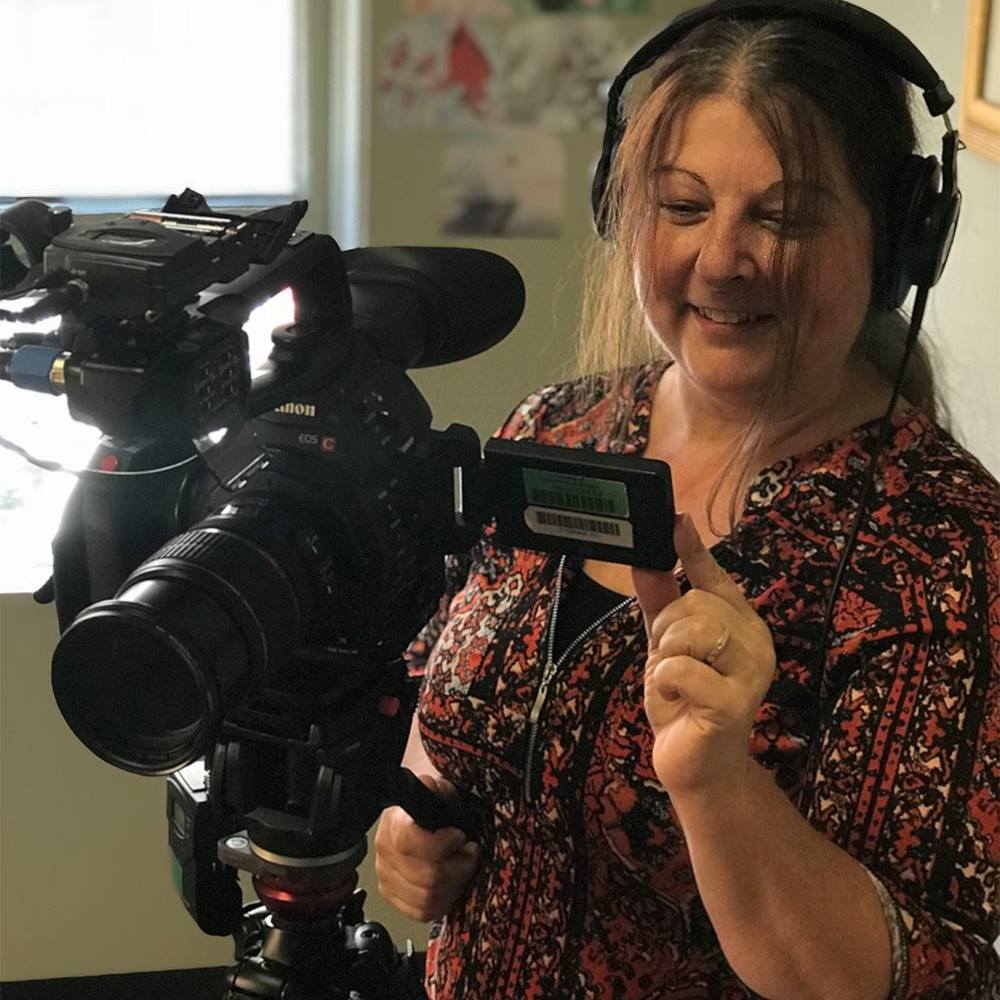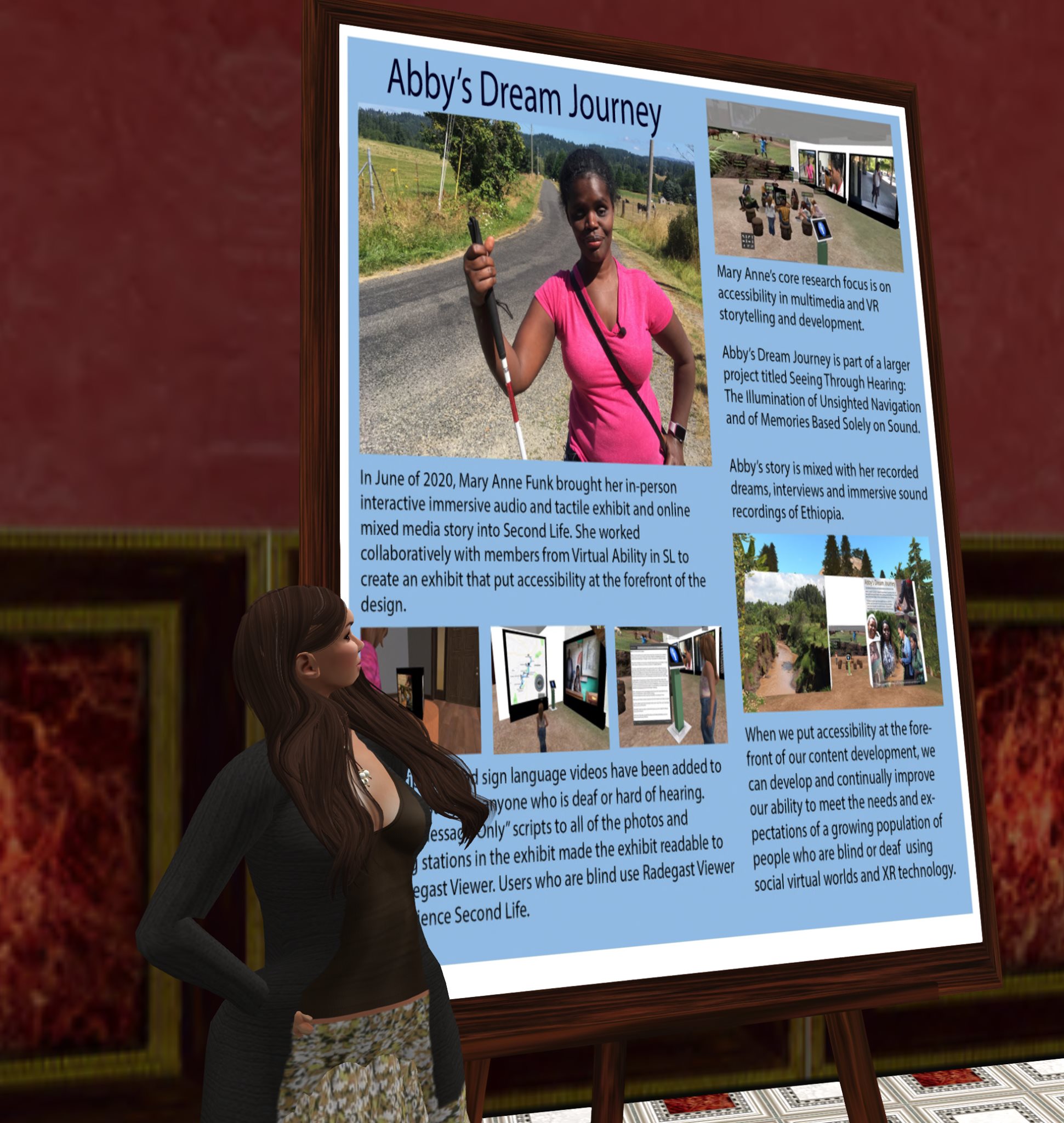Accessibility and Equity in Digital Development

 Message from the instructor
Message from the instructor
My name is Mary Anne Funk, an instructor in the Multimedia Department at PCC.
My core research focus is on universal design and accessibility in multimedia, social virtual worlds, and XR technology.
I’d like to welcome you to our brand new class, MM279 Accessibility and Equity in Digital Design.
This course will run for the first time in the Spring 2023 quarter. It will be a remote class with virtual and optional in person field trips throughout the term.
If you would like to take this class either in person or as an online asynchronous class lesson, it is possible for you to do that.
The Spring course schedule for this class and other PCC classes will be available on February 10th and registration begins on February 27th.
Course Overview
Course Description
Evaluates industry approaches and discuss assistive devices and design patterns that broaden accessibility. Implements accessibility for differently-abled users and legacy devices in the design process. Examines digital development outside of the USA throughout history and how language, cultural differences, and geography affect project success. Discusses prohibitive culture and content in digital development and the effects of media on societal health.
Intended Outcomes for the course
Upon completion of the course students should be able to:
- Apply existing explicit guidelines and legislation created by groups such as the Communications and Video Accessibility Act (CVAA), the International Game Developers Association (IGDA [pdf]), and the Web Content Accessibility Guidelines (WCAG) to projects.
- Discuss how access to hardware may limit users’ abilities to participate in digital experiences, and identify alternative access methods.
- Design sequences that allow users to adapt the experience to fit their abilities, and relate how these processes may affect a digital experience, meaning, or success.
- Explain cultural accessibility, exclusivity, and privacy considerations, and how to prevent negative impacts of released content.
Instructional Approach

Mary Anne’s avatar stands next to her Research Project Poster in Second Life during a symposium focused on accessibility in XR
Accessibility is important to me and that includes creating a class that is designed to being taken in-person or online asyncronous lessons. I am designing this class to be either in-person for students who want to take an in-person class or as an online class for students who want to/need to take this an online class.
I’m currently working on the course outline and lesson plan alongside our PCC Disability services and with members of our Portland community who use assistive and adaptive technology. Even though we are still working on the full course outline, here are some things you can expect to do over this quarter both in class and outside of class:
- Learn about the role of accessibility in design
- Learn about the difference between adaptive and assistive technology
- Examine and analyze universal design principles and universal design for learning
- Explore the major types of disabilities and related assistive technology and adaptive strategies
- Code web applications that meet W3C accessibility guidelines
- Write and design digital content that puts accessibility at the forefront of the design
- Accessible Document Design
- Discuss, research, and analyze accessibility across digital media platforms
- Analyze the difference between accessibility and inclusive design
- Use industry-standard tools to help you improve the accessibility and usability of your digital media content
Lessons, interactive discussions, course reading materials, assignments, and topics are based on:
- The department’s course content and outcomes details from the catalog.
- My personal experiences and knowledge in researching accessibility in digital media and developing accessible content.
- Topics and issues that come up in your conversations during class.
Guest Speakers:
Throughout the quarter we will be joined by members of the PCC Disability Services, researchers focused on accessibility in design, and members of the community with accessibility needs.
